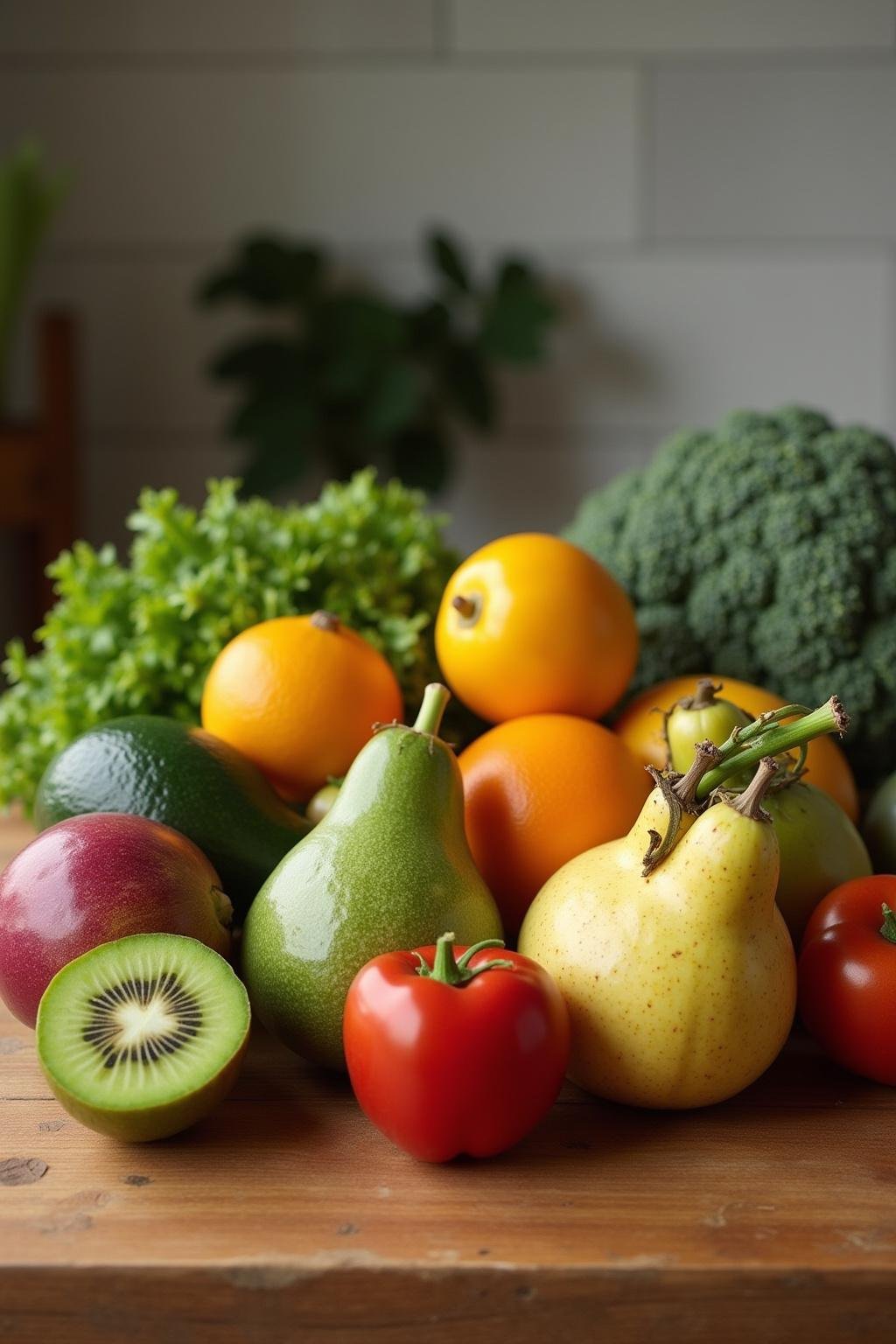1. Introduction
As women progress through their 30s, 40s, and 50s, maintaining hormonal balance and supporting the menstrual cycle naturally becomes increasingly important. Whether symptoms are related to hormonal fluctuations, stress, or lifestyle changes, adopting a holistic approach that incorporates delicious recipes and healthy eating can significantly influence overall well-being. Exploring culinary insights, *cooking tips*, and **meal prep** strategies within your food blog, you can create nourishing homemade meals that support your hormonal health. For those passionate about *food photography* and creating visually appealing dishes, this journey combines both flavor and aesthetic to inspire your culinary endeavors. To ensure you have the right tools, consider investing in essential kitchen gadgets from trusted brands like Amazon, such as [kitchen blenders](https://amzn.to/4l96klX) or [non-stick bakeware](https://amzn.to/4dZhTJT), to elevate your cooking routine for supporting your cycle naturally.
2. Understanding Your Body’s Changes in Your 30s, 40s, and 50s
During these pivotal decades, hormonal fluctuations are common, impacting everything from mood to cycle regularity. Supporting your cycle through *cooking* and **healthy eating** involves understanding these natural changes and choosing *seasonal dishes* and nutrient-rich ingredients. Incorporating foods high in magnesium, vitamin B6, omega-3 fatty acids, and antioxidants can help balance hormones and minimize symptoms like cramps and fatigue. These nutrient-dense options are featured in many **food blogs** focusing on *delicious recipes* and *baking recipes* that are quick to prepare, integrating well into your **food photography** projects. Emphasizing whole foods through your *kitchen hacks* creates a foundation for better menstrual health and overall vitality, making your culinary efforts even more rewarding.

3. Nutritional Strategies to Support Your Menstrual Cycle
Implementing *delicious recipes* that emphasize nutrient-dense ingredients is crucial for **supporting your cycle** naturally. Focus on integrating foods rich in magnesium, vitamin B6, omega-3s, and antioxidants. These components are featured prominently in various **vegan recipes**, **gluten-free recipes**, and **seasonal dishes**, easily assembled through your *food blog*. Preparing these at home allows you to control ingredient quality and experiment with *baking recipes*, *snack recipes*, and quick meals that fit your schedule. Incorporating nutrient-rich foods into your *kitchen ideas* helps regulate hormones and reduce PMS symptoms, supporting your overall health during these decades.
Healthy Proteins and Fats
Select healthy sources such as nuts, seeds, and oily fish to promote hormone regulation and minimize inflammation. Including these in your *meal prep* routines provides a solid base for **dinner ideas** that support menstrual health naturally. For example, salmon with seasonal roasted vegetables can be both flavorful and nutrient-dense, aligning with your *cooking tutorials* and wellness goals. Achieving delicious, supportive meals has never been easier with the right kitchen gadgets, like high-speed blenders or air fryers from Amazon, to facilitate healthy cooking techniques.
Herbal and Spice Infusions
Herbs such as turmeric, ginger, and cinnamon, as well as herbal teas, play a significant role in natural hormone support. These *cooking tutorials* highlight simple herbal infusions to relieve PMS symptoms and improve hormonal balance. Incorporating herbal teas as part of your *kitchen ideas* offers a soothing daily ritual that can enhance your supportive diet, especially when paired with *delicious recipes* featuring seasonal produce. For optimal benefits, consider investing in herbal infuser tools available online from Amazon to create your own herbal medicine cabinet at home.

4. Incorporating *Kitchen Ideas* and Cooking Tips for Hormonal Balance
Consistency in *cooking* and **meal prep** reinforces your efforts to support your cycle naturally. Preparing *homemade meals* with mindful ingredient choices ensures optimal nutrient absorption. Embrace *kitchen hacks* like batch cooking seasonal dishes, which can make your week smoother and more aligned with your health goals. Incorporate *delicious recipes* that include whole grains, lean proteins, and colorful vegetables to achieve a balanced diet while making time for *food photography* to motivate your culinary journey. Achieving nutritional harmony with simple *cooking tutorials* can transform your approach to menstrual health.
Meal Prep for Balance
Plan weekly menus centered around seasonal produce, whole grains, and lean proteins. These *kitchen ideas* streamline your routine, saving time and reducing stress, while ensuring your body receives continuous vital nutrients for hormonal support. Using tools like meal prep containers and kitchen timers from Amazon helps make this process manageable and effective. Incorporating these habits into your *cooking tips* promotes menstrual health and overall vitality.
Food Photography for Motivation
The art of capturing *homemade meals* through *food photography* can serve as a motivational tool to maintain healthy eating habits. Highlighting vibrant, fresh ingredients in your posts or social media feeds encourages consistency and celebrates your supportive journey. Use proper lighting and camera settings to enhance your *food photography* skills, making your supportive recipes look as appealing as they are nourishing. To perfect your food styling, consider accessories like stylish plates or props available from Amazon, which can add flair to your visual storytelling.

5. Lifestyle Practices to Sustain Hormonal and Menstrual Health
Beyond diet, lifestyle choices significantly influence your cycle. Engaging in *meditation outdoors at sunset* can reduce stress — a key factor in hormonal imbalance. Incorporating mindful *cooking tips* and intentional *kitchen ideas* enhances your holistic health approach. Activities like gentle yoga, regular walks, and mindfulness practices complement your dietary efforts. These lifestyle hacks are essential in managing hormonal health into your 30s, 40s, and 50s, making your journey to hormonal harmony more achievable and enjoyable.
Regular Exercise and Stress Reduction
Practicing yoga, meditation, or simply taking calming walks can dramatically improve your overall well-being and hormonal stability. Integrate supportive *kitchen ideas* by preparing nourishing post-exercise meals and smoothies, which reinforce your self-care. Consider booking a wellness retreat focused on emotional healing or stress management at locations like [Hawaii](https://bookretreats.com/s/yoga-retreats/hawaii?a=nincghgpfoavrucmdhly) or California to deepen your practices. Combining these activities with mindful eating creates a comprehensive strategy for sustaining a healthy menstrual cycle.
6. FAQs About Supporting Your Cycle Naturally
How can I improve my hormonal health through diet?
Including foods rich in magnesium, vitamin B6, omega-3 fatty acids, and antioxidants—found in *delicious recipes* like hearty salads and smoothies made with seasonal produce—can naturally support hormonal balance. Incorporate kitchen staples such as [superfoods from Amazon](https://amzn.to/45VdiX9) to enhance your *food blog* and support your menstrual health journey effectively.
Are there specific foods I should avoid for hormonal balance?
Limiting processed foods, excess sugar, and caffeine is crucial for hormone regulation. Instead, focus on whole, organic produce, fiber-rich grains, and plant-based options. This approach aligns with *healthy eating* principles and supports your *cooking tutorials* aimed at balancing hormones naturally.
What lifestyle practices support natural cycle regulation?
Regular exercise, stress management techniques like meditation, and adequate sleep are fundamental. Pair these with *kitchen ideas* such as preparing calming herbal teas or nutrient-dense snacks, creating a balanced holistic routine. For further support, consider attending a [mental health retreat](https://bookretreats.com/s/wellness-retreats/mental-health-retreats?a=nincghgpfoavrucmdhly) to deepen your emotional well-being.
Can herbal teas help with menstrual discomfort?
Yes, herbal teas like chamomile, ginger, and raspberry leaf are traditional remedies that can ease cramps and support hormones when consumed regularly. Including these in your *food blog* recipes enhances the supportive power of your diet and lifestyle.
7. Conclusion
Supporting your menstrual cycle naturally during your 30s, 40s, and 50s is a comprehensive journey of *cooking*, **meal prep**, and mindful lifestyle choices. Embracing *kitchen ideas* such as nutritious, *delicious recipes*, herbal infusions, and stress-reducing routines can foster hormonal harmony and enhance your wellness. Incorporate reliable kitchen tools like [air fryers](https://amzn.to/4dZhTJT) or [blenders](https://amzn.to/4l96klX) to make your *food photography* appealing and your cooking more efficient. Remember, a balanced diet paired with supportive lifestyle habits can make your path to menstrual health enjoyable and sustainable. For more holistic strategies, visit our internal resources—[holistic mental health](https://purehealthflow.com/holistic-mental-health-care-for-women-in-perimenopause/) and [stress hormone management](https://purehealthflow.com/the-cortisol-mood-connection-managing-stress-hormones-naturally/)—to deepen your understanding and enhance your support techniques.


3 thoughts on “How to Naturally Support Your Cycle in Your 30s, 40s, and 50s”